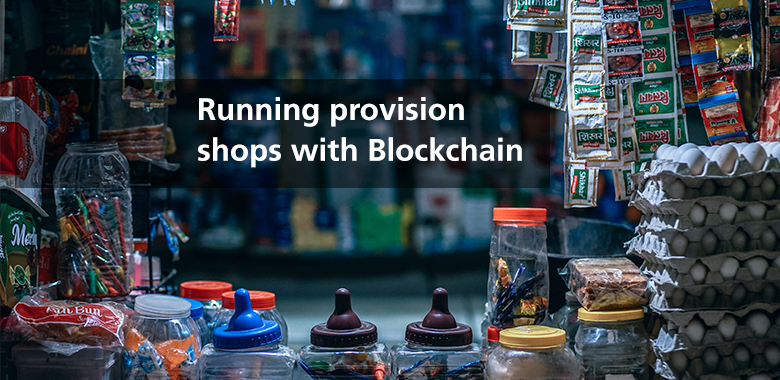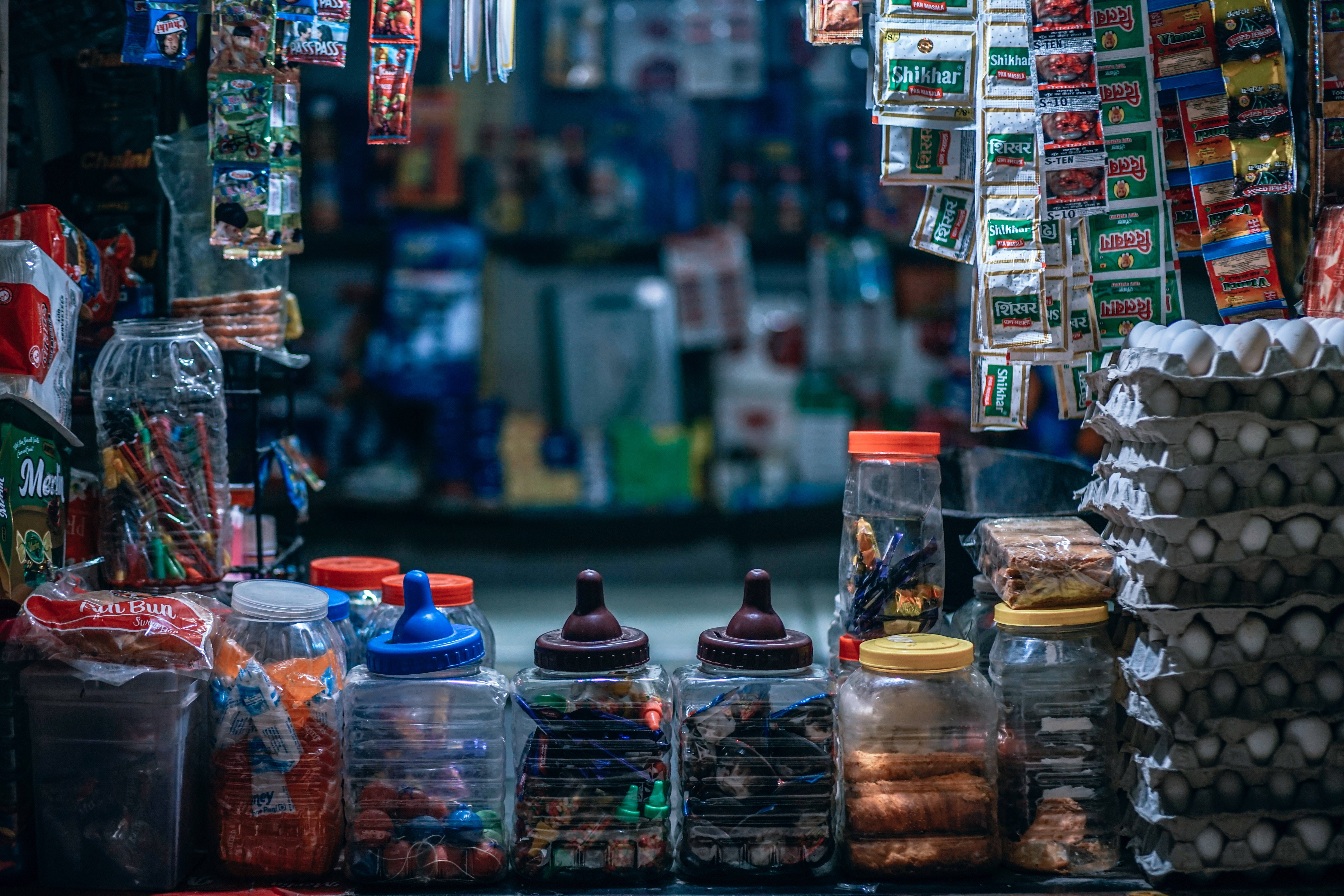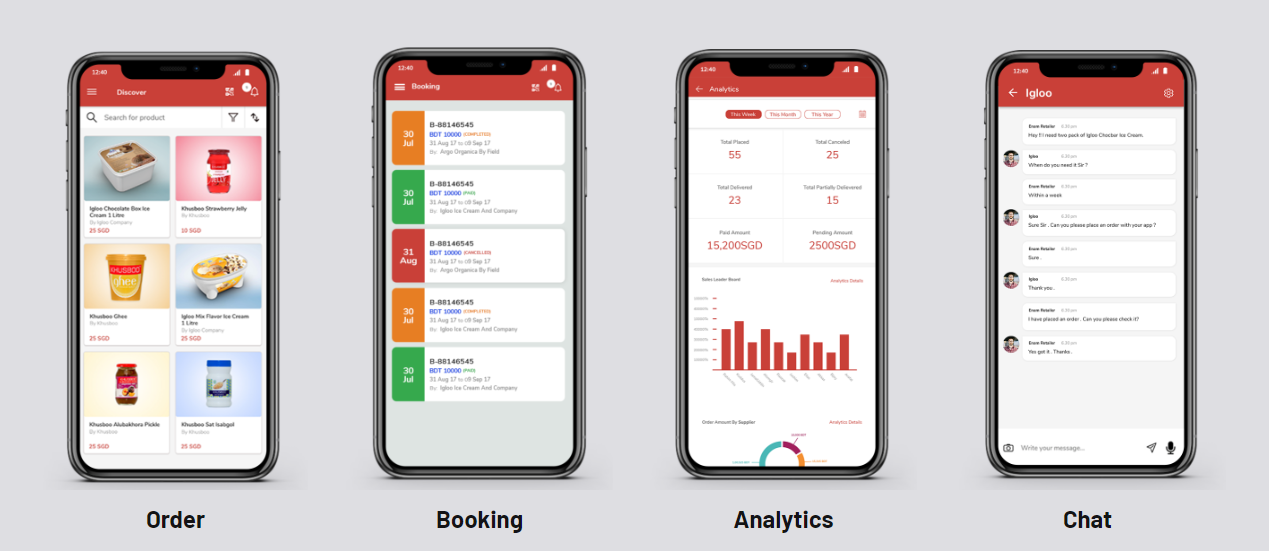Running provision shops with Blockchain

TL:DR: The chap he diam or ‘mama shop’ is on the decline as gleaming air-conditioned, 24-hour supermarkets have become staple features of housing estates island wide. Digital technologies could help these traditional businesses cut costs, earn more profits and manage time more effectively. Bringing blockchain and artificial intelligence to these family-run provision stores is Mr Enam Chowdhury, CEO of EkkBaz
In the 1970s, whether you were looking for sundries to stock up at home or a cool sng bao [ice popsicle] on a hot day, all you had to do was drop by a chap he diam or ‘mama shop’ [small provision store] near you. Some were located right under HDB blocks, at the void decks, providing unparalleled convenience to residents in the heartlands. More often than not, store owners knew residents by name, and vice versa.
But as gleaming air-conditioned, 24-hour supermarkets began creeping into housing estates island wide, these family-run provision shops have dwindled in numbers. A shrinking client pool, limited economies of scale for the products they distribute and rising operating costs means that traditional convenience stores are slowly turning into quirky heritage icons. The resilience of store owners, the personalised shopping experience they offer and nostalgia among Singaporeans are probably the only reasons some of these old provision shops still survive today.

Hoping to help small family-run businesses modernise is Mr Enam Chowdhury, CEO of EkkBaz. The graduate of Singapore Management University and former technical consultant with Microsoft is no stranger to the trials faced by the demographic he seeks to address. “While at Microsoft, I used to help at our family-based grocery store during weekends. I faced first-hand the challenges that small businesses struggle with,” he told TechNews.
A patch for productivity
The first thing that Mr Chowdhury noticed was that the majority of costs required to run a small family business comes from inefficiency in inventory management and operations.
“[While helping out with my family’s business], I had to handle many paper-based invoices, manage suppliers and reconcile inventory. It was also hard to remain organised because there were so many different communication channels, like phone calls, text messaging and point-of-sales databases,” he said. “Small businesses are struggling to cope with these costly problems and will die out if they don’t have an easier option to [streamline their operations].”
That’s where digitalisation comes in. Mr Chowdhury has developed a business-to-business (B2B) platform that helps link small business owners, manufacturers and suppliers on a single mobile application, the EkkBaz Business app.

“Our app uses blockchain and artificial intelligence technologies. Blockchain provides a valuable identity to small businesses, which some don’t possess currently, while AI facilitates order recommendation,” Mr Chowdhury explained. Think of this as the equivalent of having a verified account on Twitter and the recommender system of Netflix, but in the context of groceries and other merchandise. “The app recognises repeated order patterns and provides suggestions to store owners in their preferred language. This helps businesses save time.”
Upgrading with an ear to the ground
As much as Chowdhury desires to carry ‘mama shops’ into the future, he recognises the need for his own business to stay relevant as well. This means constantly updating the EkkBaz Business app to better serve his clients.
“There is no such thing as a finished product,” he noted. “If you want your product to be constantly marketable and useful to customers, you have to actively engage in continuous improvement. If there are new ways to make your product simpler, do it.”
Chowdhury also highlighted the importance of iterating a product with frequent feedback from the end users. “They will highlight improvements for the app that you overlooked,” he said, adding that responding quickly to feedback is just as critical.
Going forward, Mr Chowdhury and his team are developing the BAZ Protocol, a more powerful iteration of the current app, targeted at businesses dealing with fast-moving consumer goods. It will also involve the company’s own cryptocurrency, called EKK.
“Businesses will use EKK to conduct transactions and unlock extra features as needed on the platform,” Chowdhury shared. EkkBaz has already launched an initial coin offering (ICO) to fund the development of the BAZ Protocol. “The ICO is currently in the private sale phase and is aimed at building a community that supports EkkBaz’s vision to create a simplified B2B trading tool for root-level small businesses.”
“We have already launched EkkBaz Business in Singapore and Bangladesh, and will be releasing it to more markets soon,” he concluded.
https://www.tech.gov.sg/media/technews/running-provision-shops-with-blockchain
